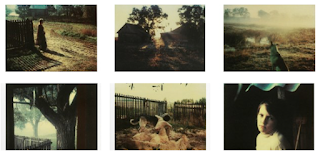Degenerate art
1933 the Natzi party came into power.
1937 held a show to dictate what art they hated and what they liked to demolish. Originally artists and writers were happy, but then everything went down hill due to the Natzi party. The Natzi party became a party that would result in deaths, suicides and unhappiness. In the 1930's the natzis sometimes stated that art was a threat to the society, that some of the art pieces were dangerous. Modern artists were considered dgenerate; they were classed as dgenerate art. The art show had graffiti behind it; ridiculing the art. Some were hung upside down, some out of their frames, others damaged. The natzis were afraid of the art; they had to take control in their eyes, for their own benefit.
Hitler was rejected from art school; he hated and could grasp art gabfest wasn't if the natural world. He hated anything that wasn't of the world as you saw it - observational. Hence why he felt threatened by such art.
A lot of painters had now became expressionists; painting distorted images and painting the inner world. Psychological landscapes. Modern society did not understand at all and all art was highly ridiculed by the press and critics and deemed inappropriate. Hitler was painting very "beautiful", clean paintings of nature and of portraits, which he was not living off of because it wasn't what was in the art world at that moment. He was "behind times".
Hitler came out of art and developed the nationalist socialist party. This would then take off in 1920 a little more with more people believing and become a part of. He, hitler himself, created the symbology. In 1924 Hitler came out of prison after trying to "take over" - where he was full of angst and spoke about virtually everybody as being a degenerate. If you don't look the same as everybody, you are "mad" - if anything you did was out of what was considered the norm, you was essentially a head case and was considered being mentally ill. Expressionism was considered the mentally ill. In the 1920's, the expressionists didn't actually have to worry about the Natzi party because they were such a small group. Few people actually cared about it. Max Becman, an artist by 29 was considered a valued artist, his art was far from expressionism. But, after the was and being discharged from the ambulance services due to mental exgustion, the war changed his work.
1932, the Natzi party was the biggest party in Germany.
In 1933, the German democracy was near death due to the Natzi party. There were book burnings had commenced and vital books were destroyed. Artists began burning their paintings in fear of being at threat from the Natzi party. They had burned their paintings and the same goes for writers. Natzism had taken over everything; art, writing, music, the press. It was something that would control everything to a T - all to make sure it was to Hitlers preference. Abstraction was strictly forbidden.
2000 years of German culture - an art show in which the art wasn't especially old and virtually everything was to do with Hitlers ideals. Anybody can understand the art shown; it lacked depth. In paintings for natzism, sadly females were either nude or mothers. There was not an expressionist who agreed with the Natzi party. (Jewish was considered another word for sick.)
Emmile Nolde had became a natzi but did still paint. He could paint in oils anymore so he painted what he called "unpainted pictures" that were highly mysterious. They were paintings painted with watercolours; which he said they reflected his pain.
An auction with lots of art; German and well known artists (such as van gough) were all up for auction n Switzerland.
1939 was the beginning of the war. In replacement of books being burned, people were being burned. The concentration camps were in full activation and the death count was rising and rising; vastly and significantly.
-------
Ai Weiwei is a controversial artist. He isn't afraid to drop what people consider valuable art which he is currently showing his work in the Royal Academy of London. Ai Weiwei and Ishcabor both are a similar artists; primarily because they both don't take a lot of their work seriously (to a degree since a lot of them have depth).






















































